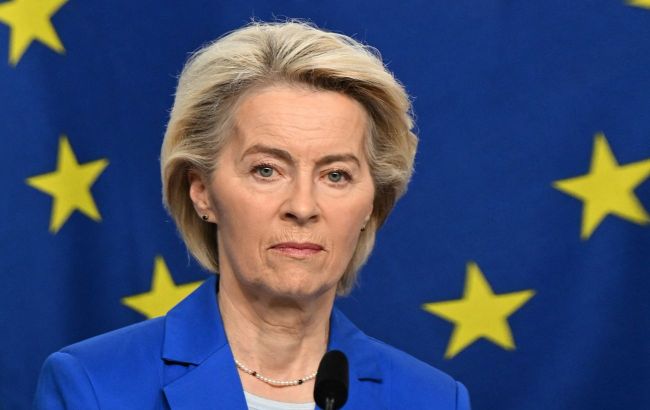EU Commission reveals position on Ukraine peace plan
 Photo: European Commission President Ursula von der Leyen (Getty Images)
Photo: European Commission President Ursula von der Leyen (Getty Images)
Russia currently shows no willingness to end the war in Ukraine and agree to a peace deal. Therefore, pressure on Russia must continue until the Kremlin is forced to make peace, European Commission President Ursula von der Leyen says.
Among other things, von der Leyen said that there are currently no real signs that Russia is truly ready to end the war in Ukraine. Therefore, pressure on the Kremlin must continue.
"So far, we have seen no signs from Russia of true willingness to end this conflict. So we have to keep up the pressure on Russia, but it is also our duty to engage with any and all efforts that can bring about a just and lasting peace," she says.
The EC President adds that it is also necessary to adhere to the key principles of a peace agreement: "nothing about Ukraine without Ukraine, nothing about Europe without Europe, nothing about Nato without Nato." In addition, Europe must ensure the return of Ukrainian children abducted by Russia.
"We know it will not be easy, but we have to find a way to move forward. We have to find a way to stop the killing, to help Ukraine rebuild and reconstruct, to return the children and reunite families. We have to find a way to provide lasting security for Ukraine and for our continent as a whole, and above all … to forge a better future, a European future, for Ukraine," von der Leyen concludes.
US peace plan
Recently, the media reported on a so-called peace plan to end Russia's war against Ukraine. The US claimed to have developed it, but it turned out that the Russian regime was the real author of the plan. This became clear after Bloomberg revealed recordings of conversations between US Special Envoy Steve Witkoff and Putin's aide Yuri Ushakov on November 26.
The plan itself initially consisted of 28 points that were unacceptable to Ukraine. In particular, it provided for the transfer of part of the Donbas territories to Russia in exchange for providing Ukraine and the EU with long-term security guarantees, reducing the Ukrainian army, renouncing long-range weapons, etc.
After the Ukrainian-American-European talks in Geneva on November 23, the Financial Times reported that the document had been significantly shortened—instead of 28 points, there were now 19. Moreover, almost nothing remained of Russia's demands.

